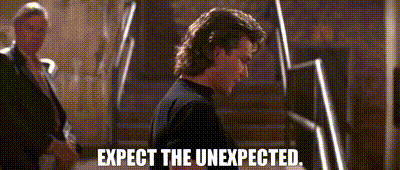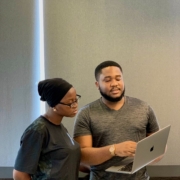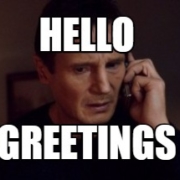Common English Mistakes in Korea – Expect
A common English mistake in Korea can cause heightened anxiety on unsuspecting foreigners, especially those of you teaching English in Korea who are trying to get a read on what might be an overly demanding school director or head teacher. This involves the use of the word ‘expect’.
This gets tricky because the Korean word ‘기다리다’ (kee-dah-lee-da) is often used interchangeably for ‘expect’ as in ‘wait’, as in waiting for someone to do something, and ‘expect’ as in ‘looking forward to’ but in a non-demanding tone. Tone and situational context mean so much in Korea and this is one such example.
Going further, if Koreans are very enthused about doing something with you, they might even place more emphasis when pronouncing the word ‘expect’.
If that’s still fuzzy, then this example will help.
Years ago, we held a language exchange event involving teachers and Koreans. Wine was involved and everyone’s spirits were up. The stage was set for a load of common English mistakes in Korea. Especially one particular Korean who wanted to express how enthused they are for coming to the next event. He indicated ‘I had so much fun. I EXPECT your next event like this!’. As he was a doctor at a local hospital, we first took him to mean that he was almost demanding that we do another event like this in an almost boss-like way and made a few of us a little flustered and thinking we need to please him by planning another event as soon as possible. But upon getting different reads from others about his English level and how he was likely thinking in Korean when stating his enthusiasm, we concluded that he was just basically saying ‘I really look forward to your next event’ which carries a lot less urgency in the tone.
common English mistakes in Korea. Especially one particular Korean who wanted to express how enthused they are for coming to the next event. He indicated ‘I had so much fun. I EXPECT your next event like this!’. As he was a doctor at a local hospital, we first took him to mean that he was almost demanding that we do another event like this in an almost boss-like way and made a few of us a little flustered and thinking we need to please him by planning another event as soon as possible. But upon getting different reads from others about his English level and how he was likely thinking in Korean when stating his enthusiasm, we concluded that he was just basically saying ‘I really look forward to your next event’ which carries a lot less urgency in the tone.
Common English Mistakes in Korea – Not what you might ‘expect’!
Likewise, at school, you might hear a Korean co-worker or director say ‘I expect you at school tomorrow’. This doesn’t necessarily mean your likely first take should be ‘I expect you to be at school at 1:45pm sharp and not a minute less!’. Context and tone can signal that this would have been better worded as ‘Looking forward to
seeing you at school tomorrow’. Big difference and these tonal differences all add up sometimes and you’ll see English teachers in Korea commenting online about horror stories involving a school and saying that they are a good judge of character and swear that the director is strict as hell. Well, that may be partly true as some directors are known to be legitimately strict. But such misreads are made by English teachers in Korea who are coming fresh from a country where they know every (or most) nuance and innuendo being spoken to them and can often sum up the situation pretty well, and they assume that they can rely on those same assumptive skills around people who don’t speak English well and certainly not well enough to let advanced forms of English like phrasal verbs, sarcasm and tone to roll off their tongue with ease. Trust us when we say, check those first reads for a moment sometimes and give a little benefit of the doubt until you get a better feel for the real English level of the other individual and preferably until you’ve got a better feel for the Korean going on in their heads before they are saying these things in English.
Have any similar moments involving common English mistakes in Korea when a Korean said something to you that you feel you might have misread and leapt to the wrong conclusion? Let us know in the comments!
- Teaching English in Nowon-gu of Seoul - August 23, 2022
- Teaching English in Cheongju at Chungbuk International Education Center - August 22, 2022
- Teaching English in Gyeongbuk Province English Camps - August 18, 2022







 Photo by Kelly Sikkema on Unsplash
Photo by Kelly Sikkema on Unsplash  Photo by Cut in A Moment on Unsplash
Photo by Cut in A Moment on Unsplash 

 Photo by Kelly Sikkema on Unsplash
Photo by Kelly Sikkema on Unsplash
Hi!
I taught English in Korea a long time ago, but I still enjoy keeping up with what’s going on over there. I noticed that the links in the article above don’t go where they’re supposed to, rather, you’re brought to this article again. Cheers :)
Hi Courtney, nice to hear from you! The links you clicked on are tags of a series on this topic. If you scroll down https://www.adventureteaching.com/our-blog/tag/english-mistakes-in-korea/, you will also see another article tagged on this topic. Will be adding a new article every day or so to this tag, so stay tuned! :D